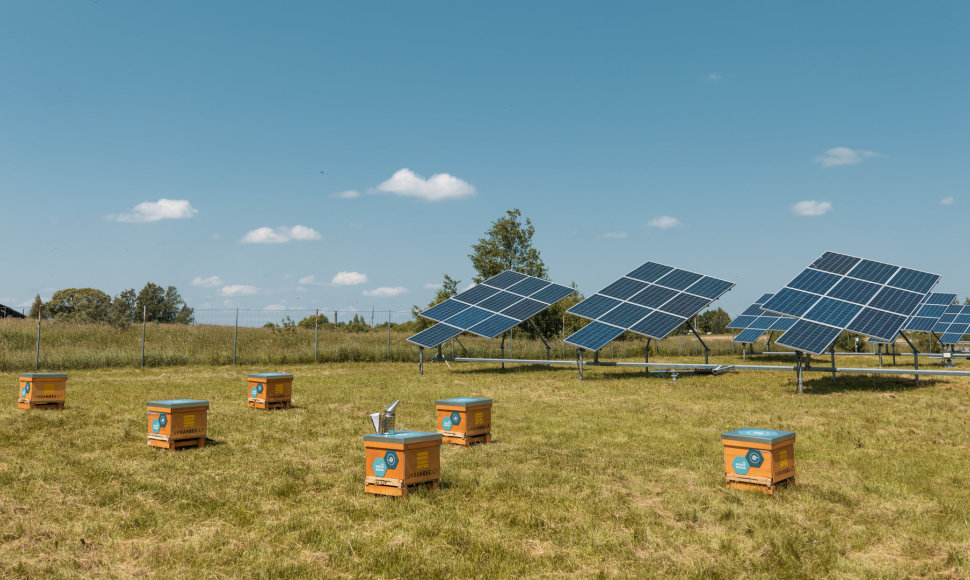The USA, Canada and other countries have begun building beehives alongside solar plants in order to maintain drastically falling bee populations. Plant pollination performed by bees is crucial for the survival of various types of plant life, and also for global food production. Green areas of land seeded with wild flowers in solar power parks are becoming a favourable ecosystem for raising bees.
“The beehives are being installed next to the solar farms all around the world in order to contribute to conservation of these endangered insects so very critical for nature. We intend to use this project in Utena to introduce this good practice in Lithuania. The installation of beehives and creation of favourable environment will be conducted in cooperation with the professional beekeepers,” said Ruslanas Sklepovičius, CEO of Green Genius.
The 1 MW remote solar power plant with beehives that will operate in Utena will soon be available to purchase or rent by any Lithuanian resident wishing to use electricity generated from the renewable sources. It will be possible to observe it round-the-clock via CCTV cameras, as well as monitoring the amount of electricity generated.
According to R. Sklepovičius, this will be the first such project by the company in Lithuania, however in the future, beehives are to be placed next to other solar power parks as well. The plants being developed by this company will be embellished with the special ‘Sun Beehives’ brand logo.
“Nearly a third of the food products consumed by people are made from plants, which grow thanks to pollination performed by insects. Honey bees pollinate up to 80 percent of plants. That said, according to research, the global bee population is constantly declining due to intensifying agriculture, use of pesticides, climate change, and other factors. Installing beehives next to solar plants is an opportunity to contribute to the protection of bees while creating a sustainable, well-informed and ecological urban community. The technology of solar plants is environmentally friendly and the surrounding wild-flower plantations can become an excellent ecosystem for bee reproduction, while the flower nectar will offer the bees the necessary source of nutrition,” said Dr Visvaldas Varžinskas, project partner and founder of the urban beekeeping initiative Urbanbee.lt.
Green Genius has previously implemented one solar project in Utena, next to which, the first beehives have been recently placed. The company has also built a solar power plant for Utenos Alus Brewery operating in this city.
Read more about the project here: https://greengenius.eu/lt/saules-parkai/












